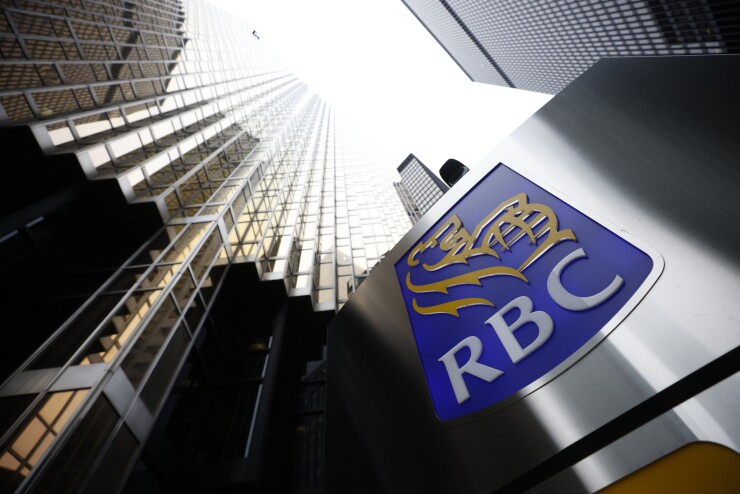RBC's U.S. wealth management business saw its revenue rise slightly in the second quarter, even as its inflows of new assets flatlined.
The revenue figure was up in part because of "higher fee-based client assets reflecting market appreciation," according to
READ MORE:
"City National generated US$88 million in adjusted earnings, up 21% from last year," RBC Chief Financial Officer Katherine Gibson told analysts in an earnings call Thursday. "We are encouraged by the momentum we are seeing and remain focused on enhancing City National's profitability."
No net new assets
The U.S. wealth unit's revenue bump occurred even though it reported zero dollars in net new assets for the quarter. (Net new assets are calculated as assets brought in through recruiting or through new and existing clients, minus assets that leave the firm.) That net new asset figure — which includes assets at City National — was down from $7.6 billion last quarter and $1.7 billion in the second quarter of 2024.
A spokesperson for the firm said the new asset tally was "impacted by annual tax payments and timing related to onboarding of advisor recruits."
Even so, RBC Wealth Management saw an increase in its tally for assets under administration, which was buoyed largely by rising capital markets. The unit's assets under administration, which include assets held for safekeeping and recordkeeping purposes, were up nearly 10% year over year to $668.9 billion. Its assets under management were up nearly 11% year over year to $304.8 billion in Canadian dollars (roughly $220.9 billion in U.S. dollars).
Results for all the wealth businesses
For all of its wealth management businesses in the U.S., Canada and overseas, RBC reported its revenue increased by 13% year over year to nearly CA$5.4 billion in the second quarter. After subtracting expenses, the wealth units had CA$929 in net income, a figure up 11% year over year.
Their assets under management were up nearly 12% year over year to CA$1.35 trillion and assets under advisement were up by nearly 11% to CA$4.74 trillion. The wealth management units' "efficiency ratio" — or the proportion of their revenue eaten up by costs — fell by 1.9 percentage points to 75.9%.
"Higher segment revenue was partly offset by higher variable compensation, commensurate with increased results and higher staff-related costs," Gibson told analysts.
Advisor headcount
RBC reported having 6,191 advisors at the end of the second quarter, 63 more than in the same period a year ago.
RBC CEO Dave McKay told analysts that customers are increasingly turning to the bank amid recent economic turmoil.
"Our results demonstrate the strength of our diversified business model and earnings power as well as the value of the insights and advice we deliver for our clients as they navigate the uncertain macro environment," he said.






